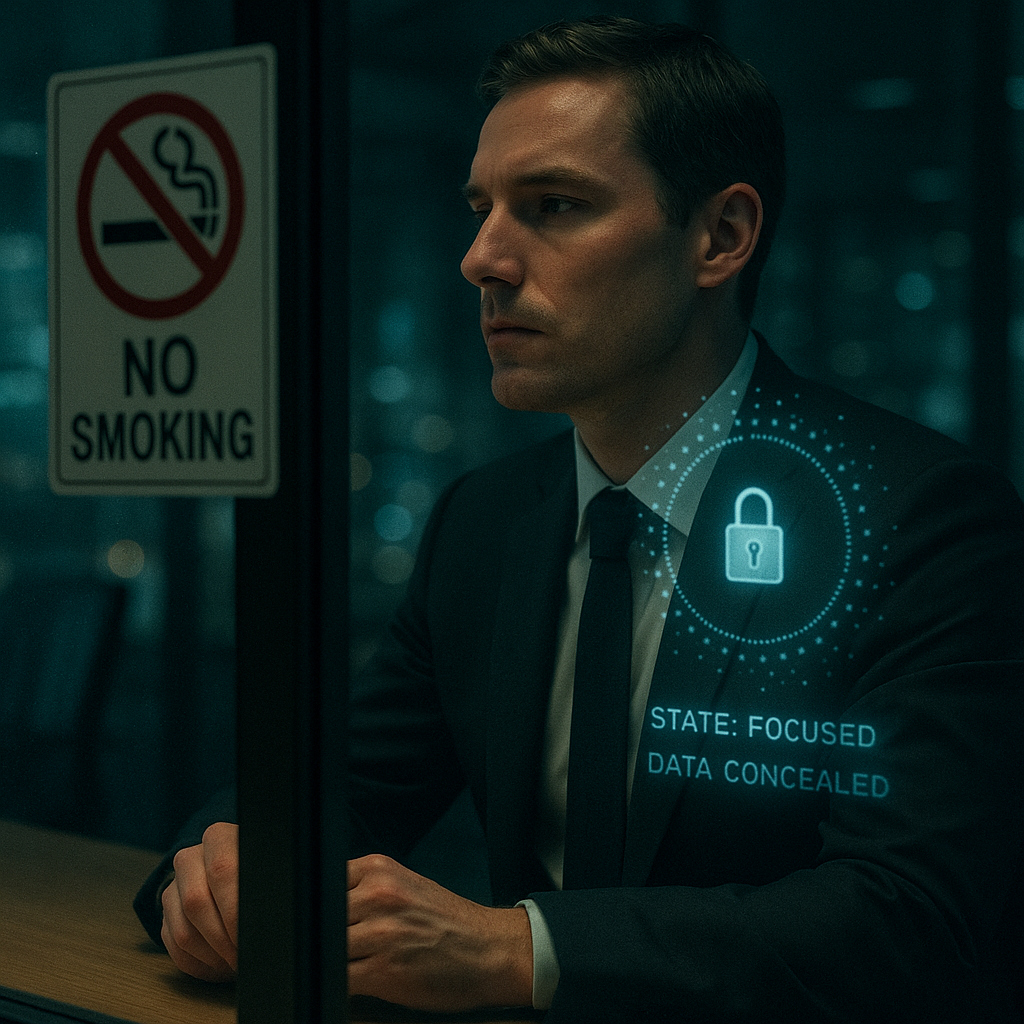Proving the State Without Revealing the Secret
In cryptography, a zero-knowledge proof (ZKP) is a protocol where one party can prove to another that they know a value, without conveying any information apart from the fact that they know the value. It’s a way to verify a secret without revealing the secret itself.
For a century, nicotine use was the opposite of this. Combustion was a plaintext broadcast. The lighter's flash, the plume of smoke, the lingering odor, the designated huddle outside—every part of the ritual was a public broadcast of the user's internal state management. You couldn't achieve the state without announcing the method to the entire network. This made the act readable, taxable, and stigmatizable.
Reduced-risk products—especially pouches—are a zero-knowledge protocol for the self. The user can achieve and verify their desired internal state (focus, composure, relief) without broadcasting any of the underlying data to untrusted observers. The only party that needs proof—the user's own nervous system—gets it. The rest of the world gets zero information.
This privacy layer is not a feature; it is a phase shift. It unlocks adoption in high-scrutiny environments where plaintext broadcasting was impossible: on camera, in client meetings, in scent-policed offices, around family who have veto power over shared air. It turns a conspicuous act into an encrypted one.
When the social cost of the broadcast collapses, the calculus of the behavior changes. The system moves from a state of constant, low-grade impression management to one of quiet execution. The user stops spending energy hiding the signal and simply uses it. This isn't just a new product; it's a new communications protocol for the self, one built for a world that demands performance but punishes spectacle.
